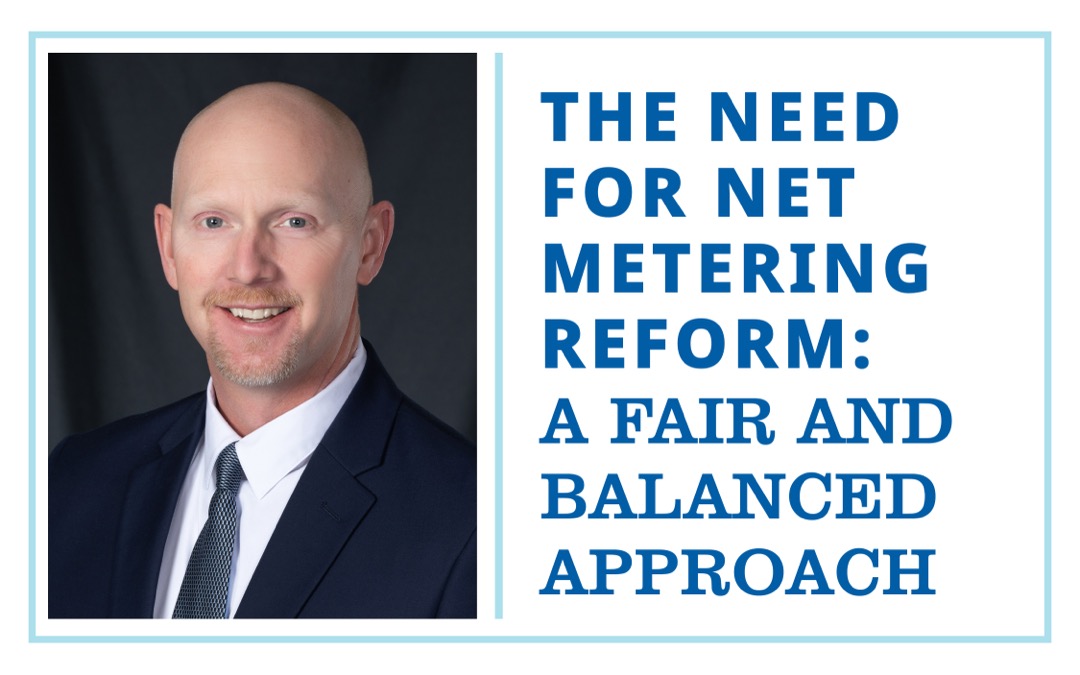While net metering was originally designed to encourage renewable energy adoption, the energy landscape has changed. Advances in technology and significant decreases in solar installation costs mean that our current net metering policies are outdated and create unintended financial burdens on members who do not generate their own electricity. As a member-owned cooperative, we believe it’s time for a fairer approach that benefits everyone.
What is Net Metering?
Net metering allows homeowners with solar panels or other distributed energy resources (DERs) to generate electricity and sell excess power back to the grid. Under current Minnesota law, cooperatives must purchase this excess power at retail rates, which are significantly higher than the wholesale prices we typically pay for electricity.
Why Reform is Needed
Minnesota was one of the first states to adopt net metering, a policy designed in the 1980s when solar technology was new, expensive, and far less efficient than it is today. At that time, the goal was to help homeowners recoup installation costs and promote clean energy adoption. However, solar costs have dropped by nearly 90%, and panel efficiency has improved by more than 300%. The financial barriers that once justified retail-rate compensation for excess power have diminished. Yet, the policy remains unchanged. As a result, Minnesota’s current net metering model is outdated and unintentionally shifting costs onto members who do not have solar.
Unlike investor-owned utilities, electric cooperatives operate on a not-for-profit basis—we exist to serve our members, not to generate revenue for shareholders. This makes fairness essential. 04-18-206 The current net metering policy forces cooperatives to buy excess electricity from solar owners at retail rates, which are nearly double the wholesale cost.
The current system creates an unintended consequence: cost-shifting. When cooperatives pay retail rates for excess power the additional costs must be absorbed somewhere—typically by members without solar installations.
This creates a significant equity issue. Studies show that households installing solar tend to be higher-income, meaning that lower-income members—who may not have the means to install solar—are subsidizing the cost of the current net metering policy. This imbalance contradicts the cooperative principle of fair and equal treatment for all members.
Minnesota is unique in allowing oversized solar installations in cooperative territories. Some members are installing systems that generate far more power than they consume, turning their solar arrays into passive income sources at the expense of other members.
While Meeker Cooperative supports members using solar to offset their energy use, net metering should not serve as a financial windfall, especially when excess energy could be provided more cost-effectively through utility-scale renewables that benefit all members.
Finding a Fair Solution
Reforming net metering doesn’t mean abandoning renewable energy goals. Rather, it means creating a more balanced model that ensures fairness for all members. A well-structured reform would:
Ensure fair distribution of grid maintenance costs among all members while properly valuing distributed energy without unfairly burdening non-participating members.
Support grid stability as renewable adoption increases and aligns with Minnesota’s carbon-free electricity goals.
Preserve homeowners’ ability to install solar and recover their investment while preventing oversized systems from creating inequitable cost shifts.
Encourage investment in the most cost-effective clean energy solutions, ensuring benefits for all cooperative members.
With the 2025 legislative session underway, Meeker Cooperative is actively working with lawmakers, members, and industry leaders to modernize net metering policies. Our priority is to ensure that all members—whether they generate their own power or not—are treated fairly and that cooperative resources are used in the most effective way.
We encourage our members to stay informed, ask questions, and make their voices heard. Whether you attend a meeting, reach out to your representatives, or simply want to learn more, we’re here to provide the information you need.

